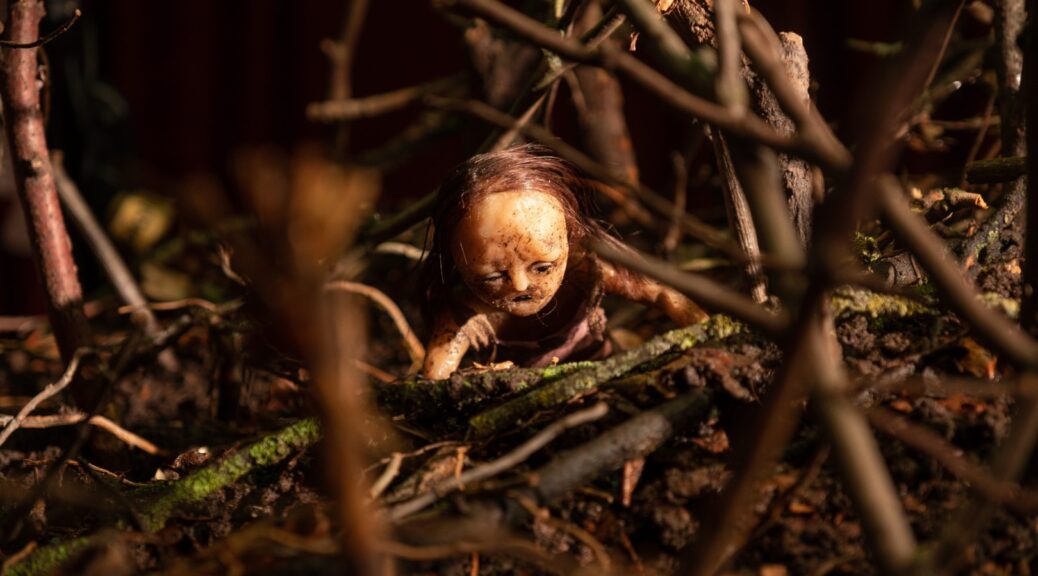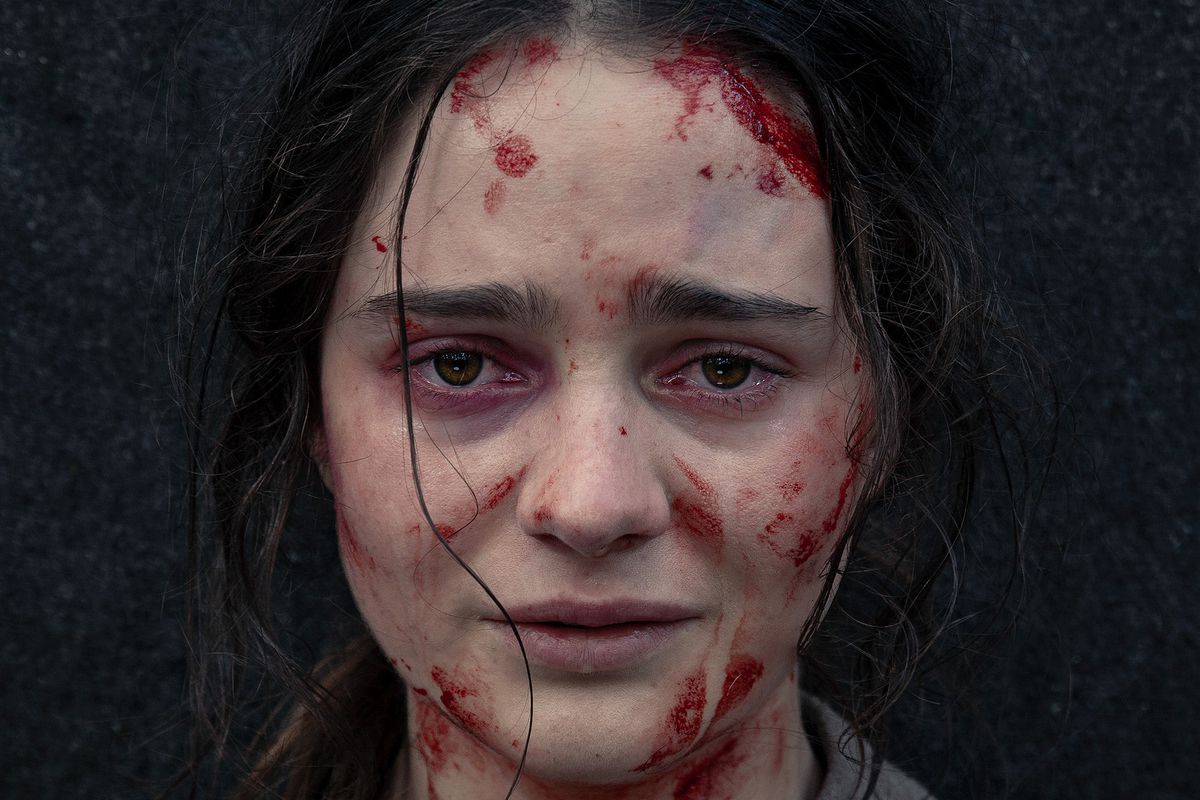Stopmotion
by Hope Madden
There will be moments when you’re watching Robert Morgan’s macabre vision Stopmotion that you’ll think you see the twists as they’re coming. That’s a trick. Morgan, writing with Robin King, assumes you’ll catch the handful of common horror twists, but he knows that you won’t predict the real story unfolding.
Although you should because he’s given you every clue.
Aisling Franciosi (The Nightingale) is Ella. She’d like to make her own stop-motion animated film, but instead she’s helping her mom finish hers. Ella’s domineering mother Suzanne (Stella Gonet, very stern) is a legend in the field, and she makes Ella feel as if she has no stories of her own to tell.
But when Suzanne is hospitalized, Ella determines to finish her mother’s film. Her boyfriend Tom (Tom York) sets Ella up in a run down, empty flat where she can work and he can check in on her, bring dinner and take care of her.
Sounds perfect, doesn’t it? Unless Ella really has no stories to tell, or the story she tells is too scary, even for her.
Stopmotion delivers a trippy, uncomfortable, and deeply felt tale of a struggling artist. This is a descent into madness horror of sorts, but it’s also the story of an artist coming to a realization about what scares her most. Franciosi’s turn is brittle and often internal. Ella’s insecurities float to the surface, and Franciosi’s unafraid to make the protagonist frequently unlikeable.
The dual storylines—live action and animation—are both well told, but the real pleasure is in the gruesomely tactile movie Ella is making. Her characters—wax and feather, bone and blood and ash—come to life in a lumbering, grotesque way that hints at any number of possible horrors.
This should come as no surprise to anyone who’s seen Morgan’s animated shorts, including “D Is for Deloused” in ABCs of Death. The animator sees the monstrous possibilities in his medium, clearly. But his feature debut balances that with an existential ugliness in Ella’s real life, and thanks to committed and nuanced performances from the whole small ensemble, both sides keep you riveted.


